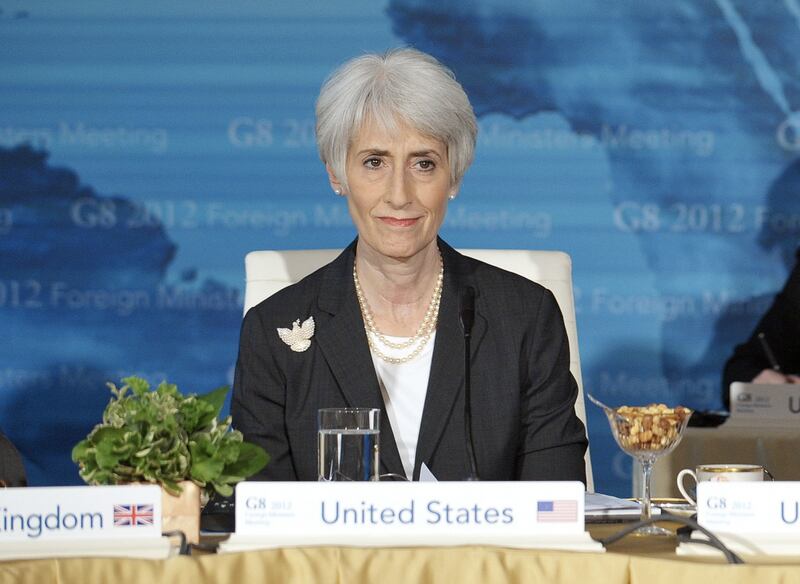A Western diplomat recently told me that the negotiations on Iran’s nuclear program are neither about Iran nor about nuclear bombs: They are about Israel.
Whether or not one accepts this claim, it is clear that Israel is central in the talks. “There’s a three-way race going here,” one of Obama’s strategists told The New York Times in 2009. “We’re racing to make diplomatic progress. The Iranians are racing to make their nuclear capability a fait accompli. And the Israelis, of course, are racing to come up with a convincing military alternative.”
It has been hard enough to find a compromise that satisfies both the U.S. and Iran. To make it meet Israel’s red line is next to impossible—by design. Throughout Obama's presidential term, the Netanyahu government has set the bar for diplomacy at impossible levels, demanding that diplomacy result in the dismantlement of the Iranian program, that is, complete Iranian capitulation. As I describe in A Single Roll of the Dice, Israeli officials even told U.S. decision makers that Israel would approve of diplomacy as long as the U.S. expected the talks to fail. (In contrast, Israel defines success for military action against Iran not at a complete dismantlement of the program, but at a mere two year delay.)

Since the Netanyahu government aims not to strengthen the West’s bargaining position but rather to make a deal more difficult, why is the Obama administration trying so hard to satisfy Bibi? Immediately after the Baghdad talks, U.S. lead negotiator Wendy Sherman flew to Israel to brief Netanyahu on the discussions with Iran. Explaining Sherman’s timely visit, a U.S. official told journalists in Tel Aviv, "We updated the Israelis in detail before we updated our own government." But if the U.S. objective is to “make diplomatic progress,” as the White House told The New York Times, why is the administration going out of its way to reassure a political element that doesn’t favor diplomatic progress?
The answer, Washington journalists and diplomats tell me, is the “Jewish vote.” Obama fears that if he cuts a deal with Iran that doesn’t meet the Netanyahu government’s red line (which would be any plausible deal), he will lose the “Jewish vote” and by extension the presidential elections. Or so the argument reads. Underpinning this reasoning is the assumption that the “Jewish vote” would follow the Israeli government’s cue.
But that assumption is questionable. Every Democratic President has been threatened that, if he pursues a foreign policy that puts the U.S. at odds with Israel, he will lose the “Jewish vote." Yet, no Democratic President has ever really lost the Jewish vote.
The American Jewish community has voted overwhelmingly Democrat since 1928. Democrats have won more than 70% of the vote in fifteen of the last twenty one Presidential elections. In five other elections, more than 60% of Jewish Americans voted Democrat. The lowest turnout for the Democrats occurred in 1980, when President Carter won 45% of the Jewish vote, compared to Reagan’s 39%. Since 1920, the Republicans have not managed to outdo the Democrats among Jewish voters.
Current support for Obama among Jewish voters is significantly higher than among the general population. According to the Jewish Telegraphic Agency, Obama’s support among registered Jewish voters is nearly identical to what he enjoyed at a comparable point in the 2008 campaign.
According to the American Jewish Committee, 61% of Jewish voters prefer Obama’s handling of national security threats to Romney’s. Similarly, in 2008, 57% had greater confidence in Obama than in McCain. On the specific issue of Iran’s nuclear program, the AJC poll shows that 61% of the Jewish voters prefer Obama to the Republicans.
Moreover, polls show that most American Jews prioritize other issues such as the economy and health care. A recent poll by the Public Religion Research Institute shows that only 4% of Jewish-Americans will cast their vote based on the candidates’ handling of Israel. Iran, the survey showed, will be a determining factor for only 2% of the Jewish community.
The fears regarding the Jewish vote are not based on empirical evidence. American Jews vote overwhelmingly Democratic—period. The variations in past elections have been minimal.
Rather, this fear is a political construct. Much like the Israeli threat to bomb Iran, it appears largely to be a bluff. Its creators want the White House to think that compromise will exact a political price, because they want to discourage a shift away from the preferred policies of pro-Likud Jewish-American organizations.
On Iran, that means saying “no” to sanctions relief in return for Iranian nuclear concessions, even at the cost of war.






